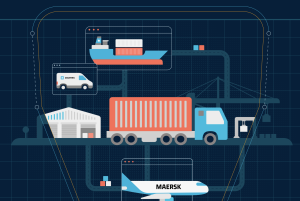 Organisations that reduce costs by managing the production cost of goods sold and not by cutting overheads had a price/earnings ratio 15% higher than their peers, reports performance advisory company Corporate Executive Board (CEB).
Organisations that reduce costs by managing the production cost of goods sold and not by cutting overheads had a price/earnings ratio 15% higher than their peers, reports performance advisory company Corporate Executive Board (CEB).
“Organisations therefore need commitment from their suppliers for sustainable and rewarding cost savings,” Douglas MacGregor, MD of supplier service benchmarking company SuppDex, tells SmartProcurement.
Companies tend to focus on cutting costs that have an immediate and significant impact like entertainment, overheads, retrenchments, or a general across the board budget slash.
However, these types of cost cuttings are unsustainable and creep back when the external pressure is off: 90% of companies fail to sustain cost reduction for more than three years; so long-term benefits are lost, reports CEB.
Interestingly, successful cost cutting companies have slightly higher overheads than their peers (initially spending more to increase operational efficiency) and much lower cost of goods sold.
 Cut costs by screening suppliers “Looking at the supply chain, improvement opportunities abound and have been described as one of the few areas in a corporation where significant improvements to the whole value chain can be made. An important area to look at is choosing the right suppliers to ensure there is a match,” says MacGregor.
Cut costs by screening suppliers “Looking at the supply chain, improvement opportunities abound and have been described as one of the few areas in a corporation where significant improvements to the whole value chain can be made. An important area to look at is choosing the right suppliers to ensure there is a match,” says MacGregor.
When choosing a supplier, regardless whether they are strategic or not, the wrong choice will negatively impact costs. It is relatively easy to screen suppliers regarding their BBBEE status, their financial standing, quality control systems, and other aspects relevant to your industry and company, but that is not all you should be looking for, explains MacGregor.
An area overlooked by many companies is how well that supplier will serve you once you have signed the contract. Sales pitches can be very convincing and enticing, making earnest promises, but how well will a supplier do the following once you engage with them?
- Do they adhere to deadlines? Do they deliver the goods and paperwork on time and when you require it? Delays, regardless how small, will affect your project timelines and costs.
- Do they have the appropriate skills and knowledge in-house? By not having an adequate skill set may impact delivery times and overall quality will have a financial impact.
- Do they stick to the quoted price? Are they leaving essentials out to give the cheapest price and then surprise you later with “optional extras”? Suppliers may offer a cheap price to get the contract and then jack up the prices when the contract is up for renewal.
- Do they honour warranties and guarantees? If something goes wrong, who pays for it? The supplier or customer, and how easy is it to settle?
- Are their products and/or services of a good enough quality? If the quality levels are not adequate then there will be price to pay further down the line increasing overall total cost to the company.
- Overall, are they an honest company with integrity? If your supplier is not trustworthy there is always the fear something will go wrong, and if something goes wrong there is a cost implication.
So how do you screen current and potential suppliers for the above? You can ask for references; however, references are not a statistically representative sample of their customer base and do not reflect the whole picture.
SuppDex has realised the best way of determining the overall service delivery of a supplier is to ask its current customers how well that supplier is performing, as leopards don’t change their spots.
“Your supplier sends a SuppDex survey link to a statistically significant number of its current customers. When the surveys have been completed SuppDex computes the scores and generates a SuppDex certificate.
The SuppDex certificate also computes an industry average so you can determine how well that supplier is performing relative to its competitors, ensuring you can get the best supplier and reducing your cost of goods sold and increasing your cost savings sustainability, concludes MacGregor.
For more information on verifying the capabilities of suppliers, contact Douglas MacGregor on douglasm@suppdex.com


























